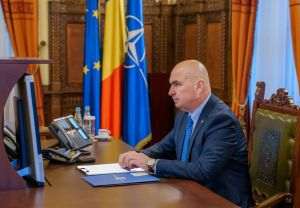International trade has become increasingly fragmented over the past five years, as countries prefer transactions with their geopolitical allies, according to an analysis by The Hinrich Foundation, based on data from the International Monetary Fund (IMF).
The analysis, taken by visualcapitalist.com, shows the differences in the share of exports within and between trading blocs from 2018 to 2023. For example, the percentage of China's exports to other BRICS members as well as to G7 members was analyzed to see how these proportions have changed over time. According to the cited source, the analyzed countries traded nearly $270 billion more with geopolitical allies in 2023 compared to 2018. This change came at the expense of trade with rival blocs, which saw a drop of $314 billion.
For example, the EU increased its share of exports to G7 countries from 74.3% in 2018 to 75.4% in 2023, which is equivalent to an increase of 1.1 percentage points.
The UK recorded the biggest increase in trade with other G7 countries (+10.2 percentage points), namely the EU, as trade in the region recovered after Brexit.
Meanwhile, the trade dispute between the US and China caused the share of China's exports to the G7 to fall by 5.2 percentage points from 2018 to 2023, the largest decline among the countries analyzed. According to the source, partly as a result of the conflict, the US has, by far, the largest number of tax-sanctions in force.
At the same time, the Russia-Ukraine war and the sanctions that followed from the West contributed to the decrease of Russia's share in exports to the G7 by 3.8 percentage points in the time period under analysis. India, South Africa and Great Britain have, however, recorded progress in exports with the "opposing" bloc.
Although the results vary significantly from one country to another, the broad trend of favoring geopolitical allies in international trade is clear, the study notes, noting that, in general, BRICS countries have moved away from exports to the other bloc, and G7 states have recorded a more pronounced change in its own block. This implies that although the BRICS countries trade less with the G7, they rely more on trading partners outside their bloc to make up for lost G7 share.
The strengthening of trade relations based on geopolitical proximity is a global trend, notes the quoted source, according to which international trade between geopolitically close countries has increased by more than 6% since the first quarter of 2022 (when Russia first invaded Ukraine). by the third quarter of 2023. In contrast, trade with geopolitically distant countries has declined.


























































